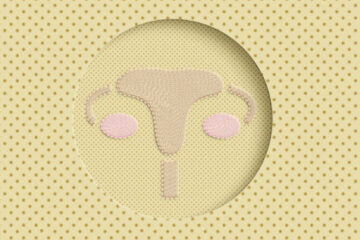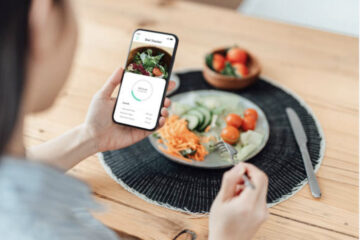With the growing interest in veganism and health, many athletes are turning to a vegan way of eating whilst competing. Poorly constructed vegan diets might predispose individuals to macronutrient (protein, omega 3) and micronutrient (vitamin B12, vitamin D, iron, zinc, calcium and iodine deficiencies [1].
In order to ensure that vegan diets meet both health and performance needs, basic dietary requirements have to be met and sport-specific diet-related objectives need to be achieved . Athletes often compete and train at high intensities which often puts them in a negative energy balance. This may lead to weight loss, muscle atrophy and decreased energy levels. Managing energy balance is thus important for all athletes, but this issue is likely to be compounded further when a diet promotes early satiation and reduced appetite, such as a vegan diet. [2]
Data indicates that vegans consume less energy than omnivores [3], and research suggests that vegetarian diets generally appear to be lower in protein, fat, vitamin B12, Riboflavin, vitamin D, calcium, iron and zinc when compared to an omnivorous diet [4]. In order to meet energy requirements ,increasing frequency of energy dense fats such as nuts, seeds and oils may be helpful in meeting calorie goals.
Carbohydrates are the primary fuel source for exercise , especially at high intensity. Achieving an adequate carbohydrate intake via a vegan diet is definitely achievable as grains, legumes, beans, tubers, root vegetables and fruits can all be consumed to meet carbohydrate requirements satisfactorily.
In order for vegan athletes to meet protein requirements it is recommended that there is adequate consumption of beans, pulses, lentils and grains daily—foods that happen to be abundant in carbohydrates to. The problem that may rise is that these products are also high in fibre which provide volume and bulk, this ultimately promotes early satiety. For those athletes that require higher energy intake, the adequate consumption of fibre rich food to achieve protein and carbohydrate intake may prove to be difficult; albeit do-able. A high fibre may also promote gastric distress (stomach pain) in some cases and therefor it is of utmost importance that race day nutrition is always practiced. Foods such as rice, pasta, noodles and buckwheat contain less fibre than oats, lentils, beans and wholegrain breads and removing the skin from tubers and root vegetables (potatoes) reduces the fibre contents of these foods whilst also maintaining carbohydrates levels[5].This serves to be useful decrease gastric discomfort when competing and training.
The optimisation of protein intakes for vegan athletes requires that attention is paid to the quantity and quality of protein consumed . Plant-based protein sources are often incomplete, missing important essential amino acids, and typically contain less Branched Chain Amino Acids (BCAA) than their animal-based equivalents[6] . The branched chain amino acid Leucine plays an important role in promoting recovery. Plant-based protein supplements that feature in the literature and are commercially available and include soy (and soy isolate), pea, rice, hemp and composite/blended protein products . Protein supplements may be necessary for improving recovery from training and fostering muscle hypertrophy as part of a resistance training program [7]. Individual dietary requirements should be calculated by a registered dietitian to determine if this is necessary.
Another consideration to take into account is iron intake. The main source of iron in the vegan diet is found in the non-haem form, which is less bioavailable than the haem iron found in animal products ,Vegan diets also commonly contain dietary inhibitors such as the polyphenols tannin (found in coffee, tea, and cocoa) and phytates (found in whole grains and legumes), which reduce the amount of iron absorbed from the diet.
Non-haem iron absorption can be enhanced (as well as inhibited), and consuming non-haem iron- rich foods in conjunction with vitamin C appears to increase absorption .Vegan athletes should therefore look to achieve iron sufficiency by choosing wholefood iron sources, reducing their consumption of inhibitor-containing foodstuffs such as tea, coffee and cocoa (when eating iron-rich meals), consume vitamin C containing foods concurrently to enhance absorption, and incorporate soaked, sprouted and/or fermented foods in their diets, if palatable. In cases of where individuals might be prone to iron deficiency, i.e. females with large menstrual blood losses, monitoring iron status and considering supplementation might be necessary.
[1] Appleby PN, Key TJ. The long-term health of vegetarians and vegans. Proc Nutr Soc. 2016;75:287–93.
[2] Marsh K, Zeuschner C, Saunders A. Health implications of a vegetarian diet: a review. Am J Life Med. 2012;6:250–67.
[3] Clarys P, Deliens T, Huybrechts I, Deriemaeker P, Vanaelst B, De Keyzer W, et al. Comparison of nutritional quality of the vegan, vegetarian, semi-vegetarian, pesco-vegetarian and omnivorous diet. Nutrients. 2014;6(3):1318–32.
[4] Phillips F. Vegetarian nutrition. Nutr Bull. 2005;30(2):132–67.
[5] Antonio J, Peacock C, Ellerbroek A, Fromhoff B, Silver T. The effects of consuming a high protein diet (4.4 g/kg/d) on body composition in resistance-trained individuals. J Int Soc Sports Nutr. 2014;11
[6] Phillips SM. The impact of protein quality on the promotion of resistance exercise- induced changes in muscle mass. Nutr Metab. 2016;13(1)
[7] Joy JM, Lowery RP, Wilson JM, Purpura M, De Souza EO, Wilson SM, et al. The effects of 8 weeks of whey or rice protein supplementation on body composition and exercise performance. Nutr J. 2013;12(1):86.
Vegan-Friendly food sources :
Protein : Pulses, grains, legumes , tofu, quinoa, nuts , seeds, vegetables
Essential fats (omega 3,6,9): Flaxseeds, walnuts, chia seeds, hemp seeds, seaweed, microalgae oil, algae
Vitamin B12 : Supplements fortified foods pant milk, nutritional yeast (Fortified) , fermented soya, mushrooms
Iron : legumes, grains, nuts, seeds, fortified foods, green vegetables
Zinc : beans, nuts, seeds , oats, wheat germ, nutritional yeast
Calcium : tofu, fortified plant milks and juice, kale, broccoli , sprouts, cauliflower, bok choi
Iodine : seaweed, cranberries, potatoes, prunes, navy beans, iodized salt
Through the strategic selection and management of food choices, and with special attention being paid to the achievement of energy, macro and micronutrient recommendations, along with appropriate supplementation, a vegan diet can achieve the needs of most athletes satisfactorily. Seek a registered dietitian for calculation of individualised requirements and a specific meal plan.
Written by Jenaed Brodell, Sports Nutritionist, Registered Dietitian







